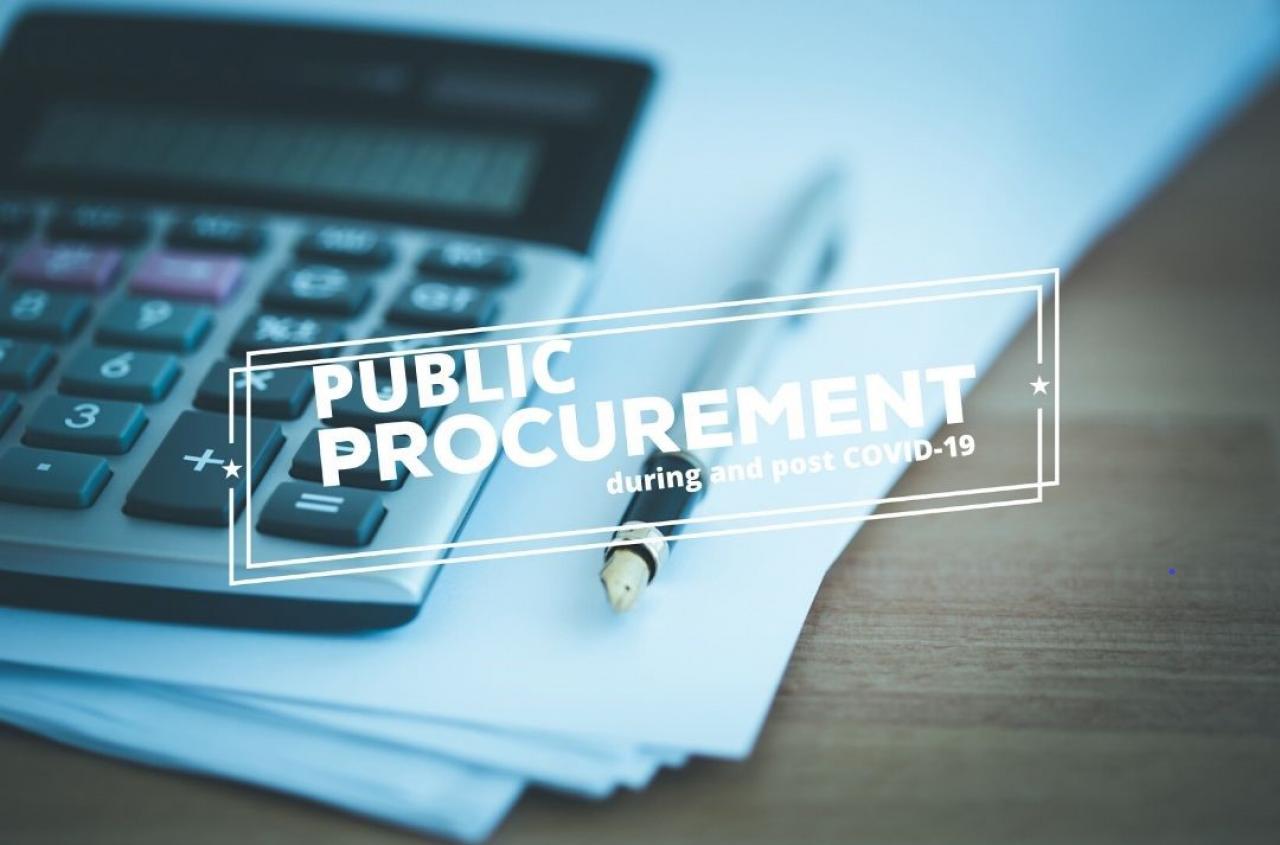
The world of public procurement has increasingly changed over the past 6 years as shown by the European Commission, with its updated procurement requirements detailed in the 2014 EU Procurement Directives. However, the scale of the challenges commissioners and procurers are facing at local and city levels are still considerable when it comes to changing their culture, behaviour and practice in order to undertake procurement in a more efficient and effective way.
Over the course of the last 2 and a half years, the Making Spend Matter Transfer Network has been seeking to progress the way in which seven European cities undertake public procurement. Framed by the Good Practice of Preston City Council in the UK, and using evidence derived through Spend Analysis as the starting point, the Network has sought to encourage cities to think more strategically about the process of procurement.
By Strategic, we mean:
- Cities having a clear evidence base, through the application of Spend Analysis of where their procurement spend goes and the wider impact it has;
- Cities having a Strategic Procurement Plan and accompanying Social Value Procurement Framework in place which defines their approach to procurement and the wider local economic, social and environmental issues they want to address through the process;
- Cities thinking about how they can engage a more diverse group of organisations to bid for and potentially win procurement opportunities, with a specific emphasis upon Small to Medium Sized Enterprises (SMEs);
- Cities embedding Social and Environmental Considerations into the procurement process, so that they move beyond cost and quality as the core decision-making factors.
The Network activities to date have taught us that such a strategic approach to procurement requires political and officer level buy-in and takes time; but is ultimately achievable and brings a range of benefits both for the economies and citizens of those cities, and in their reputations as forerunners of progressive procurement practice in a European Context.
In recent weeks and months, due to the COVID-19 pandemic, public authorities have been under pressure to rapidly change the way they work to keep their staff and citizens safe and at the same time provide extraordinary levels of support to their communities during the crisis. For procurement staff, this has included purchasing additional goods and services such as Personal Protective Equipment (PPE), sanitizing products, IT and food, as well as continuing to purchase the regular goods, services and works required to keep their cities functioning effectively and keep their citizens safe.
To support cities, the European Commission issued a Communication on 1st April 2020 which provided guidance on using the public procurement framework in the emergency situation relating to the Covid-19 crisis. This guidance highlighted options and flexibilities available to meet increasing demands for certain goods, supplies and services while supply chains are disrupted.
The flexibilities include reducing deadlines in open or restricted procedures, using negotiated procedures or direct awards and engaging with the market, where the procurements are in cases of extreme urgency directly related to the Covid-19 crisis.
In a recent digital meeting of our Making Spend Matter Network, our partners explored the impact of COVID-19 on the way we carry out our procurements and how we have used the European Commission’s options and flexibilities. We also began to think about the opportunities that the crisis presents in terms of changing procurement process and practice going forward.
Through these conversations and using our own experiences, we have identified six areas which we think should be considered in relation to procurement practice moving forward post COVID-19.
- Review Supplier Bases
In times of crisis, such as Covid-19, cities have to work quickly. They do not have the luxury of time to search for information, review markets and look for new suppliers. However, access to this type of information is often crucial to enabling cities to react when procuring necessary goods and services.
As lockdown restrictions are eased in Member States, it is important that procurement officers work with economic development teams to review and update their supplier bases or create ones where they do not currently exist. There are two reasons for this: firstly to have a greater understanding of what businesses there are within the municipality and wider boundaries and what challenges they face as a result of the COVID-19 crisis, and secondly to understand what scope there is for these businesses to competitively bid for procurement opportunities to supply goods and services across a range of sectors, and what sort of support they may need to do so.
- Do things more quickly
Procurement can often be seen as an arduous, bureaucratic and time-consuming process and rightly so because of the need for openness, fairness and transparency. However, the crisis has taught us that there are times when municipalities will need to move a lot quicker to purchase the required goods and services to respond to emergencies, e.g. the purchase of PPE, where time was of the essence in order to secure the right amount at a competitive price.
As cities seek to recover economically from the Covid-19 crisis, it will be important for them to ensure that they are able to anticipate their needs better in order to source the right solutions going forward. Discussions could be had with European Commission policy-makers as to the potential for continued flexibilities (i.e. the ability to procure more quickly), whilst maintaining openness, fairness and transparency.
- Adapt Procedures
Cities across Europe will use different procedures to undertake procurement. Pre Covid-19, this has been a mix of digital and paper based means of submitting documentation; a mix of full tendering and direct award methodologies; and using different procedures for different spend thresholds, for example, a requirement for three SMEs to bid for opportunities below 20,000 Euros. The COVID-19 crisis has required cities to adapt their procedures to make the response quicker (for example making more use of Direct Awards), and also ensure it is contactless.
Moving forward, cities are going to need to adapt their procedures, so that digital becomes the norm, and so that procurement officers have greater flexibility to directly award contracts where appropriate and relevant. In adapting procedures however, municipalities also need to make sure that suppliers who are not used to this way of working are given appropriate support to ensure that they are not excluded from the market-place.
- Understand and Engage the Market Better
The EU Procurement Directives correctly seek to ensure that the process of procurement is competitive and that cities do not actively favour organisations from within their territory. However, with the previous three points in mind and during the COVID-19 Crisis cities have been actively seeking to identify organisations based in their area or region that can provide the PPE required either because they do it already or because they are able to adapt their processes to produce it, for example. This is largely for speed, local economic benefit, and climate reasons. But it has also highlighted the crucial role local supply chains play in the resilience of cities and in their ability to react quickly and support the delivery of effective bespoke solutions for their communities.
As we move out of the immediate crisis and into recovery, all local economies will need to focus on business revival and job creation and sustainability; and as such, the process of procurement will provide an important opportunity for more local organisations to bid for and potentially win tenders. However, this means that municipalities need to understand and engage their market better, through increased dialogue about: firstly what the evolving needs of the public buyers are; secondly what the evolving needs of businesses which are coping with uncertainty, reduced staff and reduced cash-flow are; and thirdly how suppliers can adapt their business models to answer these newly developed needs.
- Embed Social and Environmental Considerations
As the COVID-19 crisis has evolved, it is clear that those most affected by it are those that already face significant economic and social inequality. Across Europe, the challenges associated with low pay, poor skills, and unemployment will continue to exacerbate such inequalities. In addition, despite reductions in emissions and improvements in air quality during the crisis, the climate emergency presents the biggest challenge to the futures of our cities. Using procurement as a lever to address local economic, social, and environmental challenges is therefore an opportunity that was live before and during the COVID-19 Crisis.
As we move forward, it is key that municipalities do not miss the opportunity to review what their priorities are, and how these have evolved and changed as a result of COVID-19. At the same time municipalities should also review their social value considerations and social value procurement frameworks to ensure that these meet those changing and evolving needs, for example shifting from “encouraging diversity in the supply chain” to “ensuring economic survival” or “promotion of wellbeing of citizens” to “ensuring health and safety of citizens”.
Embedding social and environmental considerations into procurement strategy, commissioning, tendering, decision-making, delivery and monitoring should be central to procurement processes moving forward. Online training on doing this will soon be created by URBACT. Recent publications from DG Grow on Socially Responsible Public Procurement and Buying for Social Impact can also help cities in this area.
- Look for Innovation and Cooperation
Historically, the process of procurement has involved somewhat of a transactional relationship between a public authority and a supplier. The supplier will respond to a tender brief developed by the public authority, detailing their approach to a pre-determined good, service or work requirement. The COVID-19 crisis has taught us that there needs to be a much more effective relationship between the public, commercial and social sectors generally, and specifically with regard to procurement.
Moving forward, public authorities should be looking to engage with the market, much earlier in the procurement process in order to enable innovation and cooperation, but also to ensure that the process contributes to the delivery of wider outcomes. In doing so, they will become more familiar with formulating tender questions in terms of needs rather than in terms of expected solutions. This will provide the space needed for the market to come up with innovative solutions.
These are challenging times for all citizens across Europe and for those working to seek to recover economies and livelihoods. As we move into recovery and learn to live with Covid-19, it is clear that procurement is going to play an increasingly important role, and if undertaken in the way we have described above, it can and will become a vital component of that recovery.
This article was written by:
- Matthew Baqueriza-Jackson is the Lead Expert for Making Spend Matter
- Johanna Deconinck is Preston’s Local Coordinator for Making Spend Matter
- Tamar Reay is Lead Partner Coordinator for Making Spend Matter.

